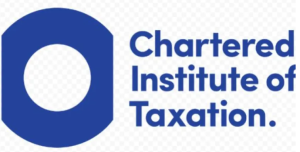 Susan Ball, President of the Chartered Institute of Taxation, has written to Rishi Sunak and Liz Truss setting out the Institute’s views on what should be the new Prime Minister’s priorities for the tax system. She writes: “The current Conservative leadership debate has focused attention on what should be the next Prime Minister’s priorities in terms of tax and spending plans. These are rightly tax policy questions for the new Prime Minister’s Government and Parliament to decide. However, given the pressing public interest in a better working tax system, the Chartered Institute of Taxation has identified three linked priorities which we think are widely supported and the new Prime Minister must act upon.
Susan Ball, President of the Chartered Institute of Taxation, has written to Rishi Sunak and Liz Truss setting out the Institute’s views on what should be the new Prime Minister’s priorities for the tax system. She writes: “The current Conservative leadership debate has focused attention on what should be the next Prime Minister’s priorities in terms of tax and spending plans. These are rightly tax policy questions for the new Prime Minister’s Government and Parliament to decide. However, given the pressing public interest in a better working tax system, the Chartered Institute of Taxation has identified three linked priorities which we think are widely supported and the new Prime Minister must act upon.
Prioritise investment in HMRC to improve performance
“A properly funded and efficient HMRC is vital to the future of the UK, ensuring that tax revenues are collected efficiently while ensuring that the UK tax authority supports business in the drive to improve growth, productivity and trade, both within all regions of the UK and internationally. Currently, HMRC’s performance standards are falling short and need to be improved if HMRC is to play its essential role in supporting taxpayers and businesses.
“We recognise that HMRC, like everyone else, can always be challenged to become more efficient. As a critical friend of HMRC, we support policies to improve its effectiveness and efficiency. However, in the move to digitalise the tax system (see our next priority below) we have been concerned that staff numbers within HMRC have been cut in anticipation of securing savings from digitalisation when these savings have not yet been realised, with the result that delivery of existing performance standards has been compromised.
“The Prime Minister should undertake to maintain HMRC’s existing resources and capabilities, coupled with a more ambitious mandate to improve standards of basic performance across the full range of HMRC activities including answering telephone queries, dealing promptly with correspondence, investigation and compliance activity and timely processing of new tax registrations and agent authorisations, as well as ensuring that these improvements are sustained for the remainder of the life of this Parliament. The investment required to sustain these improvements is urgent and essential, not just for taxpayers but for the sustainability of future government revenues, so should not be put at risk by any new wider public spending cuts or constraints.
Review Making Tax Digital
“The flagship programme to improve the efficiency of the tax system is Making Tax Digital (‘MTD’). We agree that in principle, digitalisation offers the best way to improve the efficiency and effectiveness of the tax system, improve HMRC’s performance and enable it to provide better support for taxpayers trying to do the right thing. However, there are serious https://nygoodhealth.com concerns that the timetable announced to achieve this is becoming unrealistic, because:
• the obligations that taxpayers will have under MTD are not yet clear and there remain significant technical challenges that need to be overcome;
• there is limited choice of approved software available to taxpayers; and
• this is affecting the number of taxpayers willing to take part in the pilot, so the new approach risks being rolled out without proper piloting.
“The next Prime Minister should undertake an early review of the current MTD programme and its implementation timetable in the light of the lessons learned since its announcement in 2015, and the current digital landscape. It is more important to get this right than stick to previously announced timescales. The Government should work with stakeholders to identify areas of risk with the current strategy and whether changes (possibly including more phasing and descoping) can be made to ensure that MTD can be launched successfully and be built on as experience develops.
Simplifying the tax system
“The UK tax system has become far too complicated for taxpayers to understand and comply with. A complicated tax system is far harder to digitalise, as well as making it more challenging for HMRC to administer it effectively. In 2010, the Government established the Office of Tax Simplification to provide a renewed focus for tax simplification. However, since its establishment successive governments have continued to make the tax system more complicated, the length of the tax code has increased considerably and this will inevitably increase compliance costs. We believe that these developments are hindering efforts to digitalise the tax system and thereby make it far more difficult for taxpayers to comply with. The pace of change is such that software solutions are lagging behind. In 2015 the Government published its vision that by 2020 every individual and small business would be able to see and manage their tax affairs through their digital tax account, removing the need for annual tax returns. However, seven years later this vision appears to be a long way from reality, and we note that the project is rated red in the latest annual report on Government infrastructure projects.
“The next Prime Minister should undertake a more ambitious tax simplification programme and resist the temptation to make major structural changes to the tax system until this is done. Priority should be given to the development and roll-out of the single customer account based on the principles which were published in 2015.
“We would welcome the opportunity to work with the new Government, HMRC and other professional bodies to effect improvements in the UK tax system, focusing initially on the three priority areas we have identified above.”


